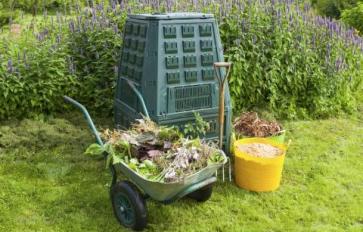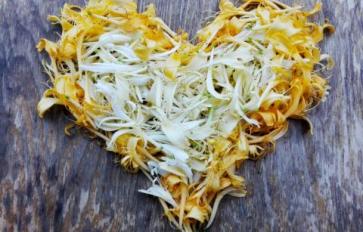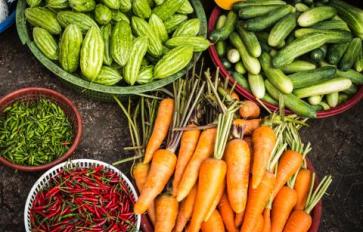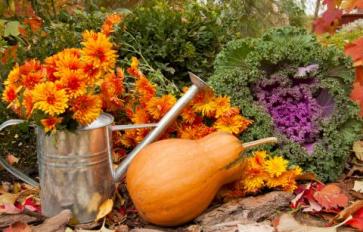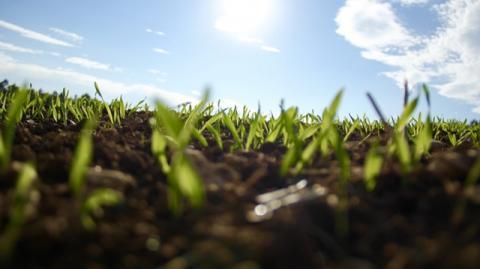
I’ve said it before; I’ll say it again. Having healthy soil is essential to a successful garden. It is always wise to regularly test the pH levels and check which nutrients you be missing in your soil. This can be done by utilizing a soil-testing kit. If your soil does require a health-adjustment, rest assured there are many organic, natural ways to better your gardening soil. Here are 10 ways to help you improve your garden’s soil.
- Limestone Pellets
When testing the pH levels of your garden, you may notice that your garden soil can become more acidic over time. If your soil becomes too acidic, it will be detrimental to plants that require low acidic environments. Placing limestone pellets on or in your soil will help neutralize the acid level and bring it back into balance. I also happen to think limestone has a pleasant smell as well.
- Manure
If you’re lacking nutrients in your soil, try using a type of manure. This organic matter comes from animal feces, such as goats and chickens. Manure works as a fertilizer by adding organic matter and nutrients, such as nitrogen, that can often get trapped by bacteria in the soil. One recommended way to add manure to your soil is by mixing it in with your compost. You can mix it into your soil as well.
- Kelp
For centuries, kelp has been used to balance pH levels and add essential nutrients to garden soil. Kelp is known for its micro-nutrients as well as its macro-nutrients of nitrogen, phosphorus and potassium. It can make small adjustments to pH levels in soil because it is a mild neutralizer in comparison to limestone. There are several ways to add kelp to your soil. A few recommendations would be to mix it in with your compost. Another way would be to purchase kelp meal or kelp spray to place directly into and on the soil.
- Compost
Compost consists of organic matter that has been decomposed. It is used to enhance, fertilize, condition and add nutrients to the soil. You can purchase compost, or even better, make your own.
- Grass Clippings
Another great way to improve your soil is by using grass clippings. Using grass clippings can enrich the garden soil with nutrients that the plants need. You can use your own grass clippings instead of throwing them away or easily collect grass clippings from neighbors. Mix in with your soil or compost.
- Cover Crop
Using a cover crop in your garden’s plant rotation can help add more organic matter to the soil. When there is more organic material, the soil improves soil tilth and productivity. In addition, some other benefits of using cover crops include soil and erosion prevention as well as improvement of aggregate stability.
- Mulching
Organic mulch consists of any plant material you place over garden soil to affect either the soil or the plants growing there. A few examples include wood chips, compost, sawdust or straw. Mulching usually allows soil to be more absorbent to rainwater than just bare soil, and it can largely reduce the amount of water evaporation.
- Garden Worms
Worms are seriously your garden soil’s best friend. Not only do they help condition your soil, having a lot of worms in your garden is a good indicator that you have healthy soil. Worms eat the organic matter and convert it into valuable nutrients and minerals that plants can use. They loosen the soil, making it easier for plant roots to grow and the air and water to circulate throughout the soil. If necessary you can buy garden worms to add to your garden; otherwise just create a moist environment in your soil with lots of organic matter in order to attract more of these crawlers.
- Coffee Grounds
Don’t throw those coffee grounds away -- you may need them for your soil. Coffee grounds have high acidic levels, which is great for plants that thrive in acidic environments, like trees and bushes. It has been known to improve water drainage and soil aeration as well. You can apply coffee grounds directly to the soil, or add them to your compost mixture. Coffee grounds have even been known to help attract more worms into your garden!
- Seed Meal
Seed Meal is an excellent soil amendment for enriching soils with plant based organic material and stimulating microbial activity. You can find many different kinds of seed meal, such as cotton, kelp or neem seed meal. It can be mixed into garden soils, used as mulch around plants or even steeped to make a potent liquid extract.
Healthy soil means healthy plants. If you discover that your soil needs improvement, I am confident that at least one of these organic methods can help you on your way to making your garden soil better.



